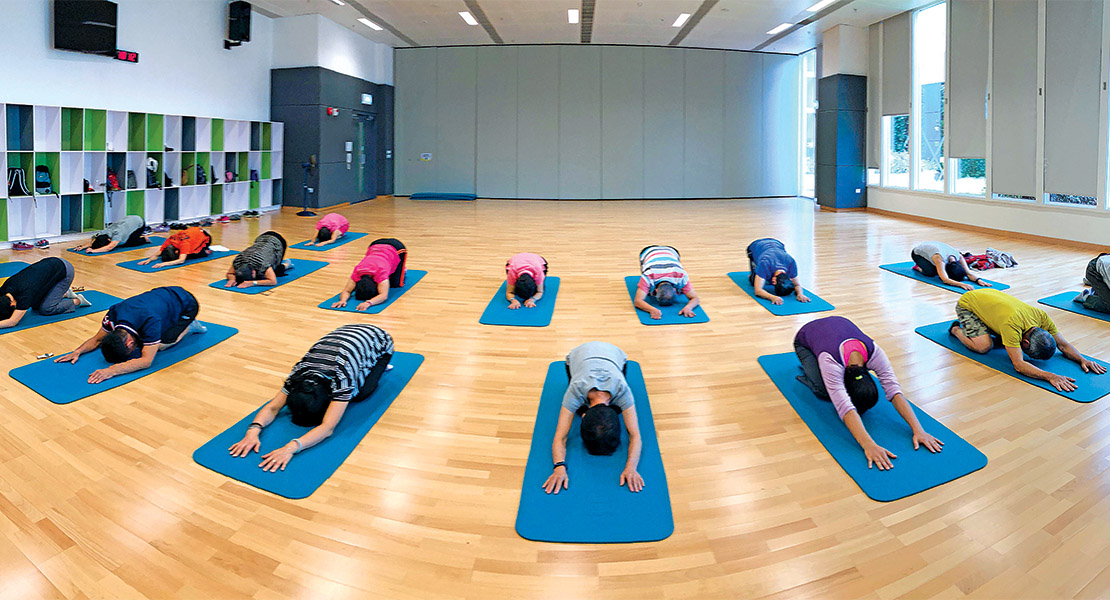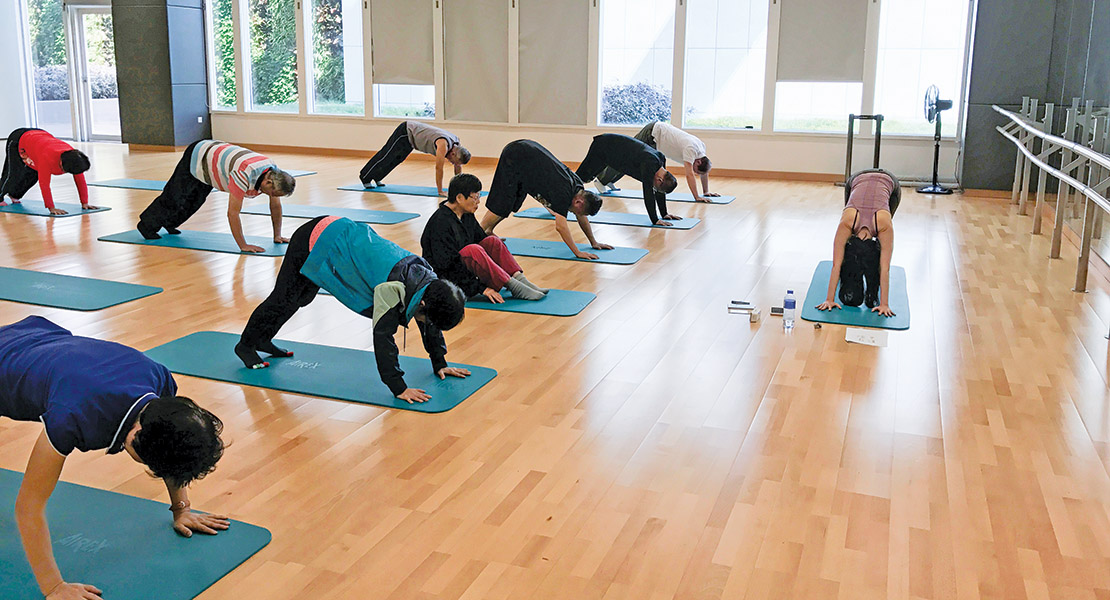Mindfulness Yoga Improves Quality of Life for Parkinson's Patients
Dr Jojo Kwok | Research Assistant Professor
Around the world, Parkinson’s Disease (PD) affects 1-2 per cent of elderly over 65 years old, leaving many of them with not only degenerating motor skills but anxiety and depression, too. Exercise can help but until now, most research has focused on the benefits of managing physical symptoms. A new study shows that mindfulness yoga may be even better because it offers both physical and mental benefits.
The study, led by Research Assistant Professor Dr Jojo Kwok and published in April 2019 in JAMA – Neurology, randomly assigned 138 patients with mild to moderate PD to participate in one of two programmes: a stretching and resistance training programme to improve motor symptoms and mobility, or a mindfulness yoga programme that taught mindfulness along with physical exercise.
The patients were questioned ahead of the programme and half were found to have symptoms of anxiety and/ or depression. Moreover, on quality of life measures, psychological distress accounted for 42 per cent of the variance in outcomes but functional impairment only 18 per cent.
“Their perceived quality of life seemed less relevant to their disease stage, but more related to how they perceived their illness and how they were coping,” Dr Kwok said.
A key factor in this perception is acceptance, which is why mindfulness was incorporated into the programme as it emphasises non-judgemental awareness of the present moment.
Each group met once a week over eight weeks at a centre run by the Hong Kong Society for Rehabilitation. The stretching and resistance training group did 60 minutes of exercise that focused on motor skills and symptoms. The mindfulness yoga group did 90 minutes which involved breathing exercises (such as “lion” breathing which stimulates facial expression, a goal for PD patients), a yoga sequence (such as a modified sun salutation focused on training both sides of the body), and mindfulness meditation (such as loving-kindness meditation to cultivate compassion and forgiveness). Each group was also encouraged to do the exercises at home for 20 minutes twice a week.
Baseline surveys and neurological examinations of the patients’ physical and mental health were conducted before the programme, at the end of the eight weeks, and three months after that.
“We found that the mindfulness yoga group had significant better outcomes related to anxiety, depression, spiritual well-being, perceived hardship and other quality of life measures. And the physical benefits were similar to the stretching and resistance training group. Most importantly, they said they really enjoyed it,” Dr Kwok said.
“It seems mindfulness helps them to cultivate their openness and acceptance and makes them feel more peaceful in their daily life. So when they have bad days in terms of symptoms, they can better manage these symptoms.”
References
- Kwok JYY, Auyeung M, Chan CHY. Examining Factors Related to Health-Related Quality of Life in People With Parkinson's Disease. 2018. Rehabilitation Nursing. doi: 10.1097/ rnj.0000000000000179.
- Kwok JY, Choi KC, Chan HY. Effects of mind-body exercises on the physiological and psychosocial well-being of individuals with Parkinson's disease: A systematic review and metaanalysis. Complement Therapy in Medicine. 2016;29:121-31.
- Kwok JYY, Kwan JCY, Auyeung M, Mok VCT, Chan HYL. The effects of yoga versus stretching and resistance training exercises on psychological distress for people with mild-tomoderate Parkinson's disease: study protocol for a randomized controlled trial. Trials. 2017;18(1):509.
- Kwok JYY, Kwan JCY, Auyeung M, Mok VCT, Choi KC, & Chan HYL. The effects of mindfulness yoga versus stretching and resistance training exercises on anxiety and depression for people with Parkinson’s disease: a randomized clinical trial. JAMA Neurology. Published online April 08, 2019. doi:10.1001/ jamaneurol.2019.0534


